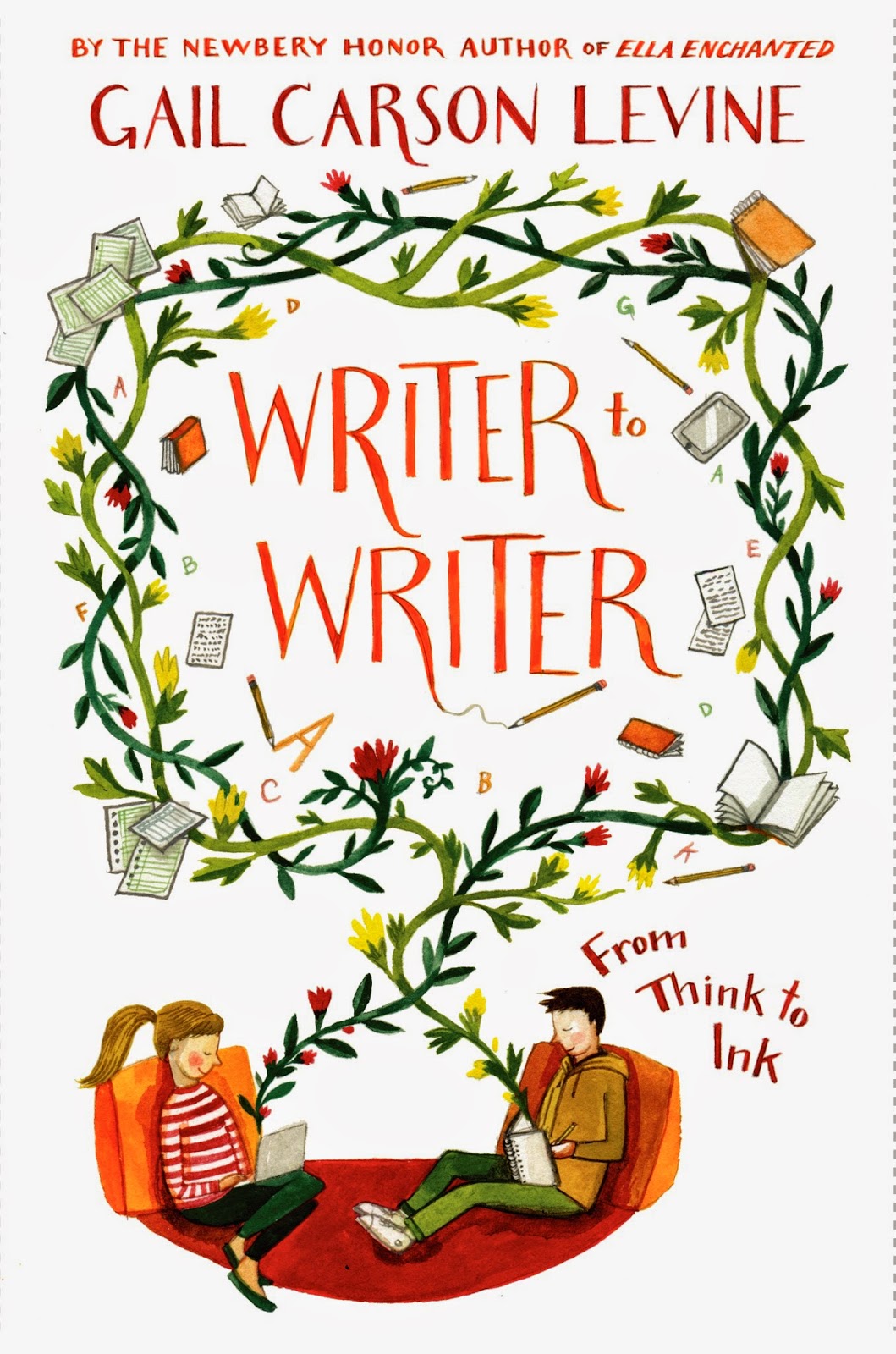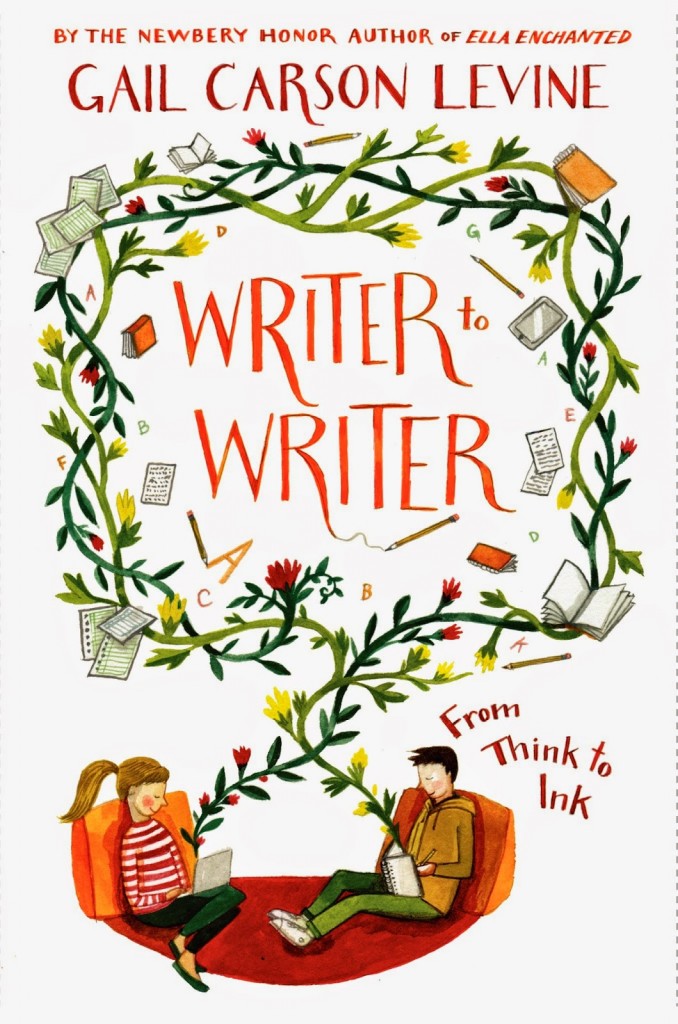On July 23, 2014, Lex from Bohemia wrote, I am having a hard time entering into a scene I know will be difficult for my characters. I’m shying away from it because it is what needs to happen, but I’m afraid to do it to my characters. Any thoughts? How do you prepare yourself to write the hard stuff?
J. Garf responded with: I don’t know of a way to prepare necessarily, but there’s a chapter about it called “Suffer!” in Mrs. Levine’s book Writing Magic. In it she talks about how if you’re cruel to your characters, your readers will care more about them and how it’s going to end. I tend to be a pretty mean writer (I’m sure that if my characters were real people they’d punch me in the face for all the stuff I put them through), but I still have the same problem sometimes. Try finding something about your characters that can make them as annoying as any real person. If you focus on that, it might not be as hard to make them suffer.
I like this, J. Garf! Relieve our own suffering by making our characters irritating! We don’t even have to actually give our MC annoying traits in the story; we can just imagine her whining whenever any little thing goes wrong. Then we can snarl happily, “If you think that was bad, take this!” and drop a boulder on her leg.
As some of you know, I’ve been working on a prequel to The Two Princesses of Bamarre, although I’m putting the work aside now that the fall semester of poetry school has started. *SPOILER ALERT!* A few times, I’ve gone back to Two Princesses to refresh my memory of some of the details. The first time I did this, when I reread the end, much to my surprise, I wept!
*SPOILER ALERT!* continues. When I wrote the book, I could have let Meryl live. But that ending seemed flat. I believed the reader would think, Oh, okay. Ho hum, what should I read next? And I didn’t want to completely kill Meryl off, either. Yes, other citizens of Bamarre would benefit from the cure, but Addie would have failed in her personal quest, so I found a middle ground that came to feel inevitable.
*SPOILER ALERT!* still continues. However, at one time the prospects were good (not any more) for a Two Princesses movie, and a script was written. The producer opposed my ending, so it came out completely happily. The screenwriter did a good job, and it worked. But I still prefer my way.
The point here is that we don’t always have to be totally brutal to our characters. We can make them suffer somewhat. The boulder can land on a toe rather than on our MC’s entire leg.
However, sometimes we do have to be totally cruel. Then we may have to bite down hard on a cloth while we write–to keep from screaming. We may have to take frequent breaks, but it must be done.
In the new book, I recently had to make my MC go through something awful, and at the end of the awful thing I piled on something else just as bad. However, it took me a while to sit down to do it. I had to write notes in which I wondered if I could get away with something less terrible. But when I finally faced the music and started typing, I had fun, because the scene has tons of energy, and I could see it so clearly.
So there’s that comfort. Those moments when everything goes horribly wrong for our beloved MC come to vivid life on the page, and our writing is likely to be our best.
Another *SPOILER ALERT!* This one is for Ella Enchanted. I wrote Ella about six and seven years after my parents died when I was in my late thirties. As I wrote about Ella’s feelings after I killed off her mother, I included some of my emotions about my parents’ deaths. That was a relief, to re-experience a very sad time in a gentle way, cushioned by fiction. Oddly, when I gave my grief to Ella, I felt like I had a companion in it. Comforting.
And that’s another strategy: to use our own experiences in the misery that we inflict on our characters. We heighten the realness of what our characters are going through, and we validate our own history.
We can also comfort ourselves. If we’re not writing a tragedy, we can keep in mind the final victory and the lessons learned. We can think of bad things that have happened to us that turned out well in the long run, that we learned from, that strengthened and shaped us.
In addition, we can talk to our characters in our notes and prepare them for what’s to come, the way a doctor or a dentist does when she’s about to inflict a little pain. “You’ll feel a prick,” she says, and we get ready, and it’s much better than being taken by surprise. Moreover, we may learn something about our characters. These conversations won’t appear in our story, but they can help us deal out the bad stuff. Might go something like this:
Lanie, in a minute I’m going to drop a boulder on your leg. It’s going to be extremely painful.
Why would you do this to me? Do you hate me?
No. Actually, I love you. You’re my favorite character.
I’d hate to be a character you dislike. So why are you doing it?
You’ve used strength and agility in the past to accomplish great things, but you haven’t learned other skills that will bring you the success you want most. Being laid up will force you to engage with the people who are important to your goals. You’ll learn that you have to depend on others. The lesson may hurt more than the boulder. Sorry!
Will I be able to walk and run after I recover?
You’ll have a limp forever.
Silence. Then: But I’ll still be able to throw a spear, right? You won’t mess up my arm or my eyesight?
They’ll be fine.
Okay. Do it already.
Here are four prompts:
• Write the conversation with your character about what’s going to happen.
• Rewrite the conversation with your character about what’s going to happen and make your character so irritating that you don’t mind doing it!
• Your MC’s BFF tells him that she never liked him. Write the scene. Be sure to include your MC’s emotions. If you like, continue and write what comes next.
• Your MC’s beloved dog Woof gets the power of speech. He tells your MC that he dislikes her and that everything she does annoys him and always has. At the animal shelter he was hoping to be picked by anybody but her. He’s just too polite to bite. Write the scene. (This may be the worst thing you can do to a character!) Again, include your MC’s feelings, and keep going if you like.
Have fun, and save what you write!


